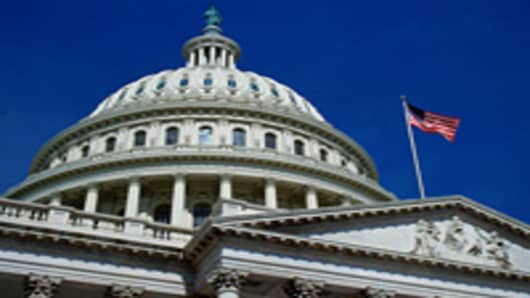Ezra Klein has an idea: Let’s have a growth supercommittee.
The crisis in Europe, the disaster in Japan, the concerns about China and the clear faltering of the global recovery have sent investors rushing to buy the one asset they still consider safe: Treasury debt.
They have become such eager customers for Treasury debt that the real rate has turned negative. That is to say, the market will actually pay us to issue 5-, 7-, or 10-year debt and take their money. This isn’t just free money. It’s better than free money. If a corporation was being offered these rates and refused to take them, the board of directors would fire the CEO.
This is money that could be used for a massive payroll tax cut. It’s money that could be used to overhaul our nation’s deteriorating infrastructure. It’s money that could help state and local governments stop firing people. It’s money that could go towards medical research.
To believe this money isn’t a good deal, you would have to believe that these activities have a negative real rate of return. At a time of massive joblessness, when factories are idle and roads are crumbling, is simply not credible.
My argument with Klein would be that a lot of the things he advocates actually do have a negative rate of return. Government spending on medical research, state and local government employment and overhauling infrastructure is mostly just wasted money. Sure, the funded projects will keep a few politically connected people employed but in general these things do have a negative rate of return. These projects aren’t part of a growth strategy.
What’s more, having the government spend the money undermines the deleveraging that the American people are attempting to accomplish. It would be far better to balance additional government borrowing with steep—even radical—tax cuts that could be used to accelerate the deleveraging. The faster we get out from under the mountain of private debt, the better off we’ll be. That’s a formula for healthy long-term growth.
If the tax cuts run deep enough, at least some of it is likely to contribute to additional spending—giving the economy a short-term boost as well.
_________________________________________
Questions? Comments? Email us atNetNet@cnbc.com
Follow John on Twitter @ twitter.com/Carney
Follow NetNet on Twitter @ twitter.com/CNBCnetnet
Facebook us @ www.facebook.com/NetNetCNBC



